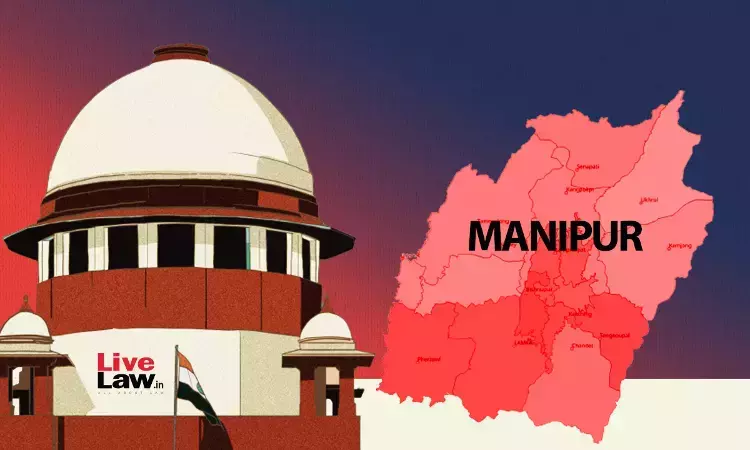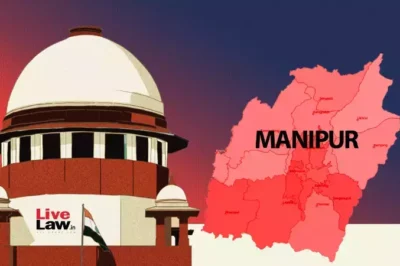
Introduction: A Legal Challenge with Cultural Implications
Sheikh Noorul Hassan, a Member of the Legislative Assembly (MLA) from Manipur’s Kshetrigao constituency and leader of the National People’s Party (NPP), an ally of the Bharatiya Janata Party (BJP), has approached the Supreme Court challenging the constitutional validity of the Waqf (Amendment) Act, 2025. Hassan contends that the Act infringes upon the fundamental rights of Scheduled Tribes (STs) practicing Islam, particularly concerning their religious freedoms and property rights.
Key Provisions Under Scrutiny
Central to Hassan’s petition is Section 3E of the Amendment Act, which prohibits land owned by ST members, as defined under the Fifth and Sixth Schedules of the Constitution, from being declared as waqf property. Hassan argues that this restriction unjustly denies ST Muslims the right to manage their religious endowments according to their traditions, thereby violating their constitutional rights to practice and propagate their religion.
Allegations of Arbitrary Restrictions
Beyond Section 3E, the petition highlights several other provisions that Hassan believes impose undue state control over Islamic religious endowments, diverging from the traditional essence of waqf. He asserts that these amendments could distort the religious character of waqfs and disrupt the democratic processes governing their administration. Furthermore, Hassan expresses concern that these changes might pave the way for government overreach into waqf properties, potentially amounting to land appropriation.
The Concept of Waqf by User
Another significant issue raised is the amendment’s elimination of the concept of “waqf by user.” Traditionally, in Muslim jurisprudence, a property becomes waqf by user when it has been used for religious or charitable purposes over time. The Supreme Court has previously recognized this concept, notably in the Ram Janmabhoomi case. Hassan argues that removing this provision undermines established religious practices and could lead to legal uncertainties regarding the status of certain waqf properties.
Potential Impact on Scheduled Tribes Practicing Islam
The petition also raises concerns about the broader implications for STs who practice Islam. By restricting their ability to declare their property as waqf, the Amendment Act may disproportionately affect these communities, limiting their religious freedoms and access to benefits associated with waqf properties. Hassan warns that this could lead to social and economic disadvantages for ST Muslims, further marginalizing an already vulnerable group.
Legal and Constitutional Arguments
Hassan’s legal challenge is grounded in several constitutional provisions:
- Article 14 (Right to Equality): He argues that the Amendment Act discriminates against ST Muslims by denying them rights available to others, thereby violating the principle of equality before the law.
- Article 15 (Prohibition of Discrimination): The Act’s provisions, according to Hassan, amount to discrimination based on religion and social origin, contravening this article.
- Article 25 (Freedom of Religion): By restricting religious endowment practices, the Act allegedly infringes upon the freedom to practice and propagate one’s religion.
- Article 26 (Freedom to Manage Religious Affairs): The amendments, Hassan contends, interfere with the community’s right to manage its religious affairs, a right guaranteed under this article.
Broader Implications for Religious Autonomy
This legal challenge is not isolated. Previously, the Indian Union Muslim League (IUML) filed a petition in the Supreme Court contesting the Waqf (Amendment) Act, 2025, on grounds of violating religious autonomy and personal rights. The IUML described the Act as an “unconstitutional assault” on the Muslim community’s rights, highlighting concerns over increased state control and arbitrary restrictions.
Conclusion: Awaiting Judicial Scrutiny
The Supreme Court’s forthcoming examination of these petitions will be pivotal in determining the balance between state regulatory powers and the protection of religious freedoms. The outcome will have significant implications for the administration of waqf properties, the rights of Scheduled Tribes practicing Islam, and the broader discourse on religious autonomy in India.









































Leave a Reply